Spain remembers Madrid train bombings 10 years on
- Published
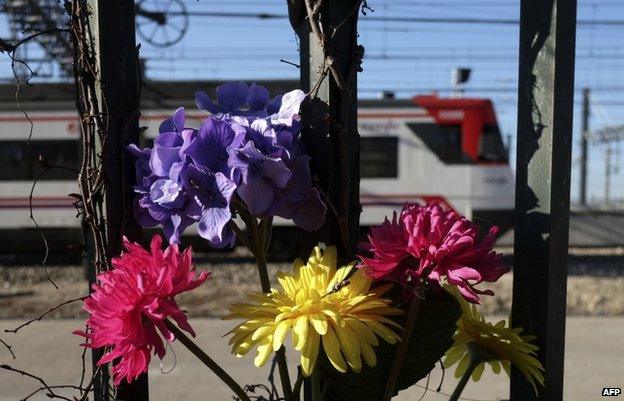
Spain still bears the scars of the 2004 bombings in which 191 died and many more were wounded
Amalio, a commuter on a train in Madrid on 11 March 2004, has witnessed things that some soldiers might never see.
"I remember (seeing) pieces of human flesh."
"People's arms, shoes, left on the road."
Standing alongside him at an art exhibition commemorating the 10th anniversary of the Madrid bombings is 70-year-old Ciriaco Abad Martin, who was also on one of the commuter trains on that fateful morning.
Ciriaco was just a metre and a half away from one of the bombs. He lost his hearing in his right ear.
He and Amalio, 44, both say they live with "psychological damage that you can't repair".
Time to reflect
A decade on, Spain still carries the scars of what the country's interior minister describes as the country's "worst ever terrorist attack".
To mark the anniversary, politicians of all parties have stood side-by-side, to remember the 191 people who died, and the more than 1,800 others who were injured.
Tuesday 11 March 2014 is a day of remembrance - a time to reflect on the darkest day in Spain's recent past.
Perhaps rightly, on the anniversary itself, much of the Spanish media are not discussing the actions of the then government in the days following the 2004 attacks.
But behind the show of unity, there is deep resentment at the way former Prime Minister Jose Maria Aznar reacted to the attacks.
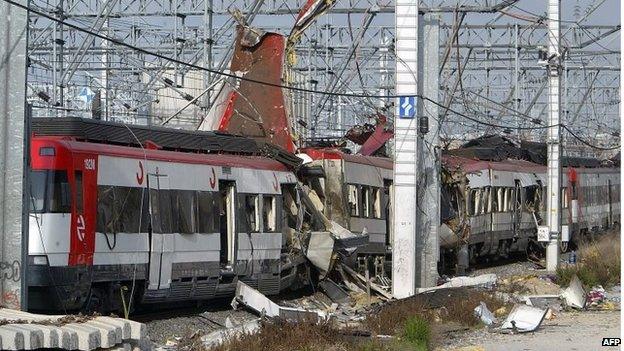
Trains at Atocha railway station were ripped apart by the blasts
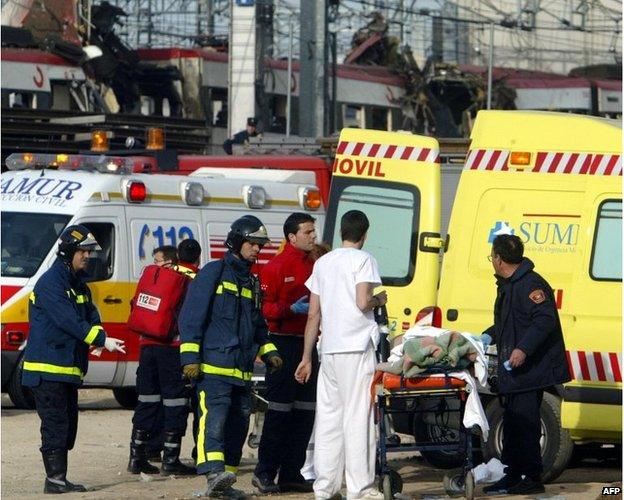
More than 1,800 people were injured in the attacks
It is true that the first reaction of many people in Spain, on hearing the news of bombings that morning, was that the Basque militant group Eta was to blame. Eta had killed more than 800 people over the course of its four-decade-long insurgency.
But from the beginning, there was strong evidence, including the type of explosives used, that al Qaeda-inspired militants were behind the attacks.
For three days, Mr Aznar and his ministers kept pointing the finger of blame at Eta.
Amalio, who survived the attacks, accuses Mr Aznar's Popular Party (PP) government of "lying".
With elections just around the corner, he believes they manipulated the facts to suit their own ends. "They could not recognise that it was about our participation in an absurd war in Iraq."
Despite this, the PP lost the general election four days after the bombings.
According to a senior Spanish police source involved in investigating the bombings, there was "no doubt from the very start" that Eta was not involved.
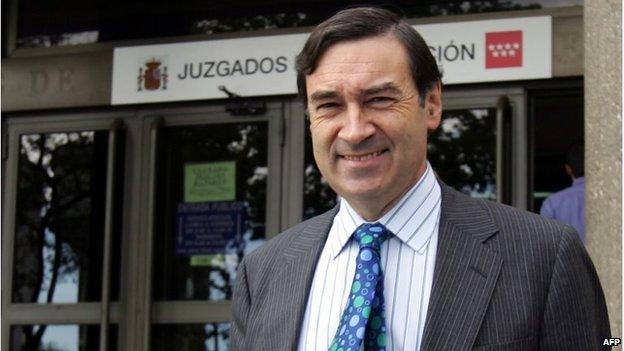
The director of El Mundo, Pedro J Ramirez, still claims Eta might have been involved in the bombings
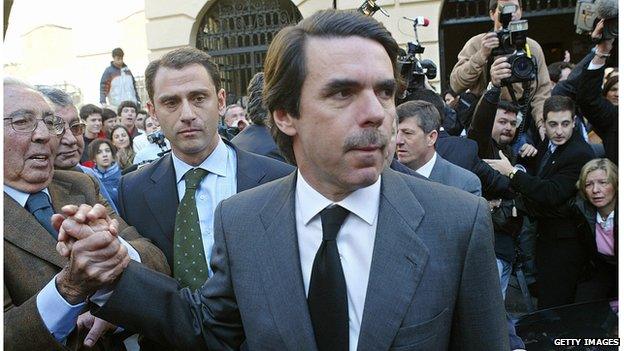
Then Prime Minister Aznar lost the general election just days after the bombings
But a decade on, there are those in Spain who still refuse to rule out the possibility Eta was involved.
Helped by the fact that seven of the alleged ringleaders blew themselves up, in a flat surrounded by police, three weeks after the attacks, conspiracy theories about who was responsible have appeared in Spain's right-wing press on numerous occasions.
One of those is El Mundo newspaper.
The paper's founder, and director at the time, Pedro J Ramirez, was challenged on the subject in a recent interview. He still insists that the Basque militant group could have played some part in the attacks.
A colleague I met in a restaurant the other day went a step further - she is still convinced of Eta's involvement.
Divided Spain
After the 9/11 attacks in the US and the 7/7 London bombings, politicians in the US and UK united in the face of a common threat.
But after the 11 March bombings in Madrid, Spain's political class divided over the then government's claims about who was responsible.
A decade on and the PP is back in power.
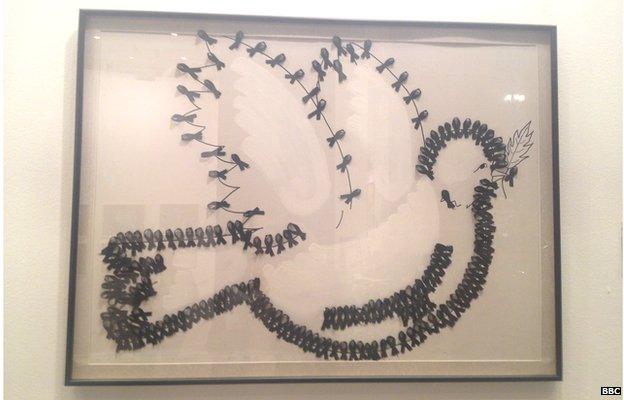
An art exhibition is just one of the ways people in Madrid are marking the 10th anniversary of the attack
And on the eve of the 10th anniversary of the attacks, surrounded by art works, including a dove made out of 191 black ribbons, Spain's Interior Minister Jorge Fernandez Diaz said it was "time to look at what unites us, not at what divides us". "We were all on those four trains," he added.
That is the over-riding sentiment on the anniversary.
Nowadays Spain's main opposition Socialist party is critical, but their leaders do not accuse Jose Maria Aznar's government of lies.
But lingering in the background will be memories of the political reaction to the attacks, and the deep political divisions in the face of crisis, which to some extent remain in today's Spain.
- Published7 September 2011
- Published21 August 2023
